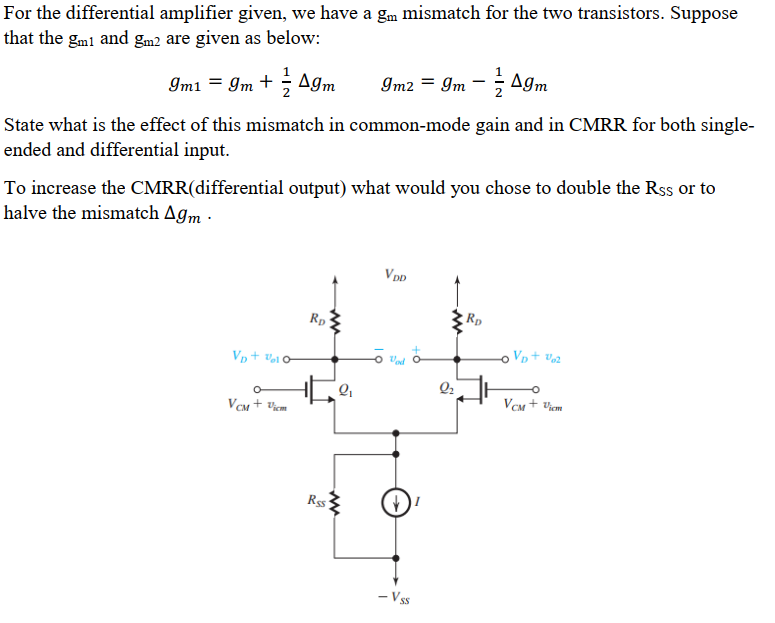For the differential amplifier given, we have a gm mismatch for the two transistors. Suppose that the gm1 and gm2 are given as below: gm1 = gm + 12 Δgm gm2 = gm − 12 Δgm State what is the effect of this mismatch in common-mode gain and in CMRR for both single-ended and differential input. To increase the CMRR(differential output) what would you chose to double the RSS or to halve the mismatch Δgm.
